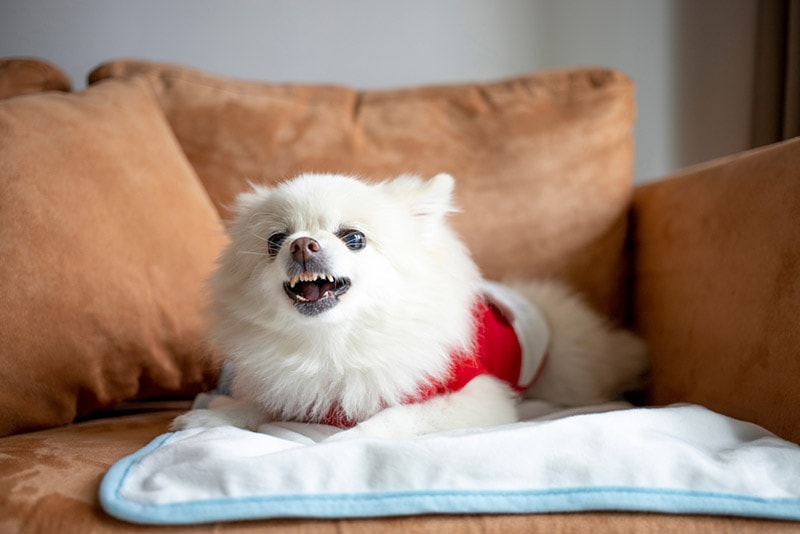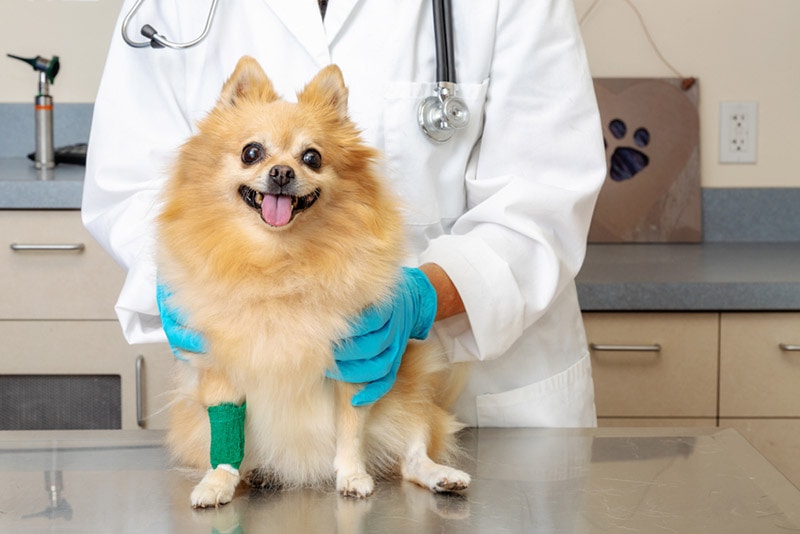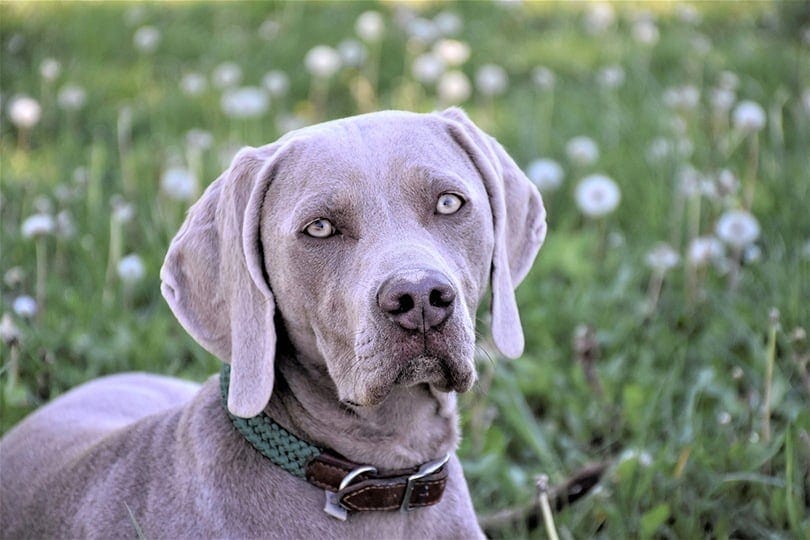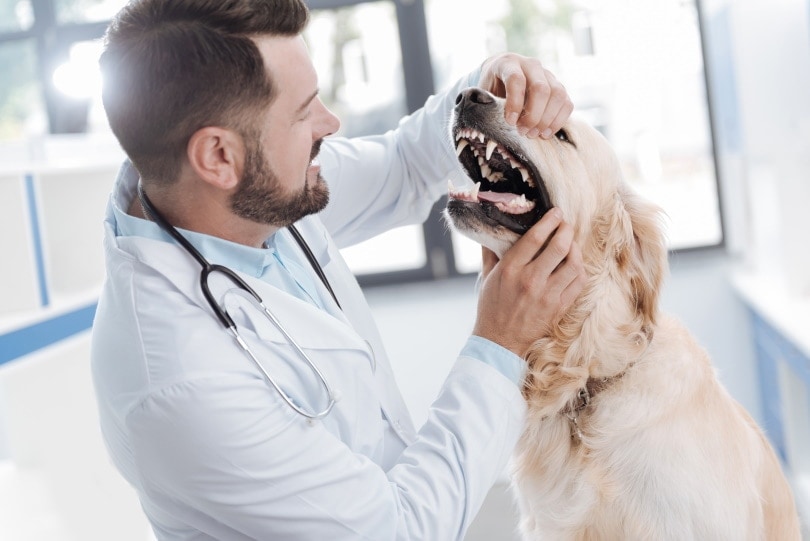Why Is My Pomeranian Shaking? 10 Vet Approved Reasons
Updated on

Pomeranians are the quintessential tough guys. Even though they are small, that fact seems to elude them. That’s not unusual for breeds of this size. It occurs partly because people dismiss them as non-threats. The dogs also might be more fearful because they’re well aware of their place on the hierarchy. They lash out to protect themselves from real or perceived threats.
A Pomeranian that acts submissively or shakes is a red flag. It’s out of character for this usually outgoing dog. You might expect to see this behavior if the pup is in a new situation that is out of its element. A new home is a surefire way to cause a pet to shake. Other obvious reasons exist, along with others that point to something more serious. Let’s start with the former and move on to others worthy of a vet visit.
The 10 Reasons Why Your Pomeranian Is Shaking
1. They’re Afraid of Something
Shivering or shaking is a common response to being afraid of something. It can be a new situation where an animal—or human—has no experience with the event or other new things. The natural reaction is to draw back from it since the dog has no idea what to expect. Caution is its friend in this case. After all, mistaking a rock for a bear won’t hurt you, but thinking a bear is a rock could kill you.

2. They’re Too Cold
We must cite the obvious: your Pomeranian is too cold. Shivering helps an animal warm up through muscle action. Flexing them produces heat, which can make them feel more comfortable in inhospitable conditions. It uses a lot of energy, with heat as one of the end products.
3. Angry and on High Alert
We talked about the chip that small breeds have on their shoulders. Some dogs can get so angry that they shake in response. Of course, stress is at a maximum, making this situation unhealthy for any dog.
Usually, animals show signs that things are escalating, alerting pet owners to diffuse these situations before you get them fighting mad to the point of shaking.

4. Hypoglycemic or Low Blood Sugar
Small dogs and puppies must eat often to maintain healthy blood sugar levels. If they drop too low, a pet may become hypoglycemic. A common sign of this is tremors or shaking.
A pup may also seem nervous and experience gastrointestinal distress. Overexertion is a cause of this condition when a dog depletes energy faster than it replenishes it. That’s why vets recommend small frequent meals for young dogs.
5. Stress
Stress can also tap energy reserves as a Pomeranian handles changes in its world. Remember that canines are used to stable environmental conditions where things stay status quo. Frequent or unexpected changes upset the proverbial apple cart, leading to shaking or trembling as a response. Even if the shift seems minor to you, your pet may have a different reaction.

6. Overly Excited
Getting overly excited can push a Pomeranian to the point where they are shaking. They’re trembling from the stimulation overload. This is often accompanied by heavy panting and an obvious source of excitement.
7. Injury
Injuries can be accompanied by stress, fear or pain that can manifest themselves in shaking. If your Pom has just been in an accident and is shaking, take them to the veterinarian for assessment.

8. Seizures or a Condition Causing This Symptom
Some pet owners might be concerned that shaking is mild seizure behavior. Epilepsy and other seizure causing disorders can vary widely in their effects and some Pomeranians will shake while having a seizure. If you have any questions about behavior your pet is showing we recommend consulting with your veterinarian. It’s essential to remember that shaking alone isn’t diagnostic of epilepsy and your pet will need a check-up at the vet.
9. Generalized Tremor Syndrome (GTS)
Generalized tremor syndrome (GTS) describes a condition often seen in white-colored dogs. However, it also occurs in other breeds. The cause is unknown, but the signs are distinctive. Vets often diagnose it when they’ve eliminated the other obvious causes. That makes it more frustrating for pet owners since they don’t know what to do except keep their pups comfortable.

10. Distemper
Distemper is one of the most serious causes of undiagnosed shaking in a Pomeranian. Luckily, most canines are vaccinated before they go to their forever homes. Nevertheless, it’s worth keeping on your radar, especially with pets that haven’t completed the entire series of shots. Other signs include thickened pads, drooling, lethargy, and coughing.
Final Thoughts
Shaking in a Pomeranian often has causes that are obvious due the surroundings or situation they are in. Your pup may simply be afraid of a new situation or have had a bad experience as a puppy. However, if the signs persist or are combined with other signs of ill health, it’s worth investigating with your veterinarian. Remember that behavioral changes are often a red flag that you shouldn’t ignore.
Featured Image Credit: Marco Tjoanda, Shutterstock












